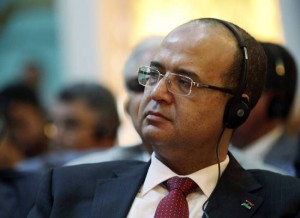By Moutaz Ali.

Tripoli, 10 March 2017:
The battle for the central oil crescent terminals will only deepen divisions in Libya, former deputy prime minister Awad Al-Barasi has told the Libya Herald.
He criticised elements of the Presidency Council’s (PC) government of national accord (GNA), including its defence minister Mahdi Al-Barghathi, for applauding the advances made by the Benghazi Defence Brigades (BDB).
“They don’t realise how our people in Cyrenaica look at this attack,” he insisted.
“This might lead to more divisions and military clashes in other areas. War always has disastrous outcomes,” Barasi added.
Many parties were working hard to establish a semblance of stability in Libya and he condemned the “unacceptable and irresponsible military escalation” which he said undermined those efforts.
In a separate statement two days ago, the former deputy PM, himself from the east, said the fighting ignored the damage being done to Libya’s major income source. Oil production and facilities were at risk as a result of the attack, he warned, insisting that the operations of the National Oil Corporation (NOC) had to be spared from political and armed dispute. Those supporting it, he added, failed to understand the “devastating effects of such an action”.
In addition to Barghathi, PC members Abdelsalam Kajman and Mohamed Al-Amari have given their backing to the BDB offensive.
Since leaving Ali Zeidan’s government in 2013, Barasi claimed he had stayed away from politics. He rejected suggestions he still had a relationship with the Muslim Brotherhood (MB) pointing out that he had resigned from the MB-linked Justice and Construction Party in May 2015.
Barasi now heads the Libya Peace Initiative, a reconciliation organisation aiming to bring warring parties to the dialogue table. He revealed he was in contact with a number of officials from Western countries and those neighbouring Libya. The plan is to conduct hearings across all parts of society in Libya, including tribal elders and politicians, to listen to their “fears, thoughts, demands and interests”.
Barasi’s claim that the attack will harden divisions in Libya echoes that of other Libyan political analysts who point to the fact since it happened, public opinion has rallied strongly behind the LNA led by Field Marshal Khalifa Hafter, seeing it as their defence against forces coming from the west of the country.







